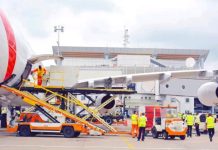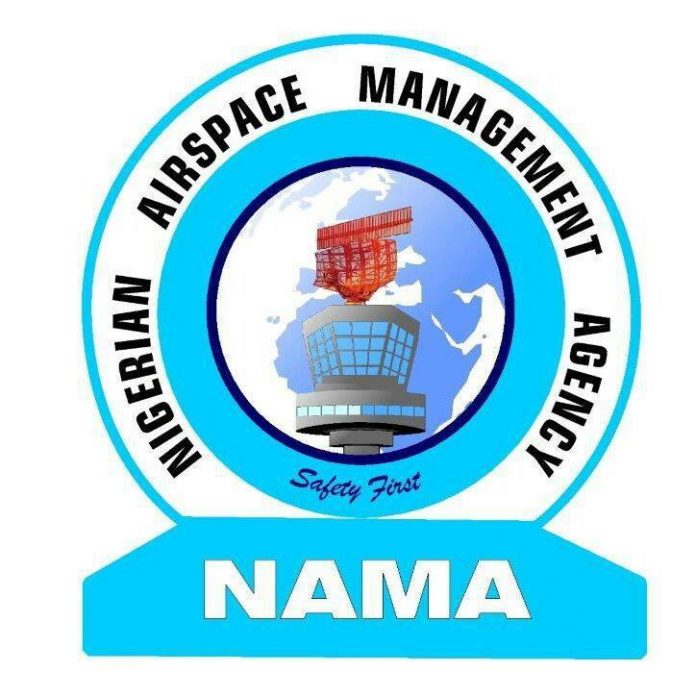For the first time in its 25-year history, the Nigerian Airspace Management Agency (NAMA) has embarked on a comprehensive audit of the entire Kano Flight Information Region (FIR), which covers Nigeria’s airspace. The landmark initiative, which commenced on Tuesday, marks a bold step by the agency to strengthen airspace safety, enhance operational efficiency, and consolidate Nigeria’s preparedness for international certification and oversight.
The FIR audit is designed as a systematic self-assessment exercise that will examine the performance of Nigeria’s air navigation services, regulatory compliance, and overall safety management systems. It also serves as a strategic move to prepare NAMA for the impending Air Navigation Service Provider (ANSP) Certification by the Nigerian Civil Aviation Authority (NCAA), while aligning with global oversight exercises such as the International Civil Aviation Organization (ICAO) Universal Safety Oversight Audit Programme (USOAP) Coordinated Validation Mission (ICVM) and the Regional Office Safety Team (ROST) Mission.
As part of the audit, NAMA will assess critical components of Nigeria’s aviation ecosystem including Air Traffic Services (ATS), Communication, Navigation and Surveillance (CNS) systems, Aeronautical Information Management (AIM), Planning, Research and Statistics (PRS), and Search and Rescue (SAR) operations. The exercise will also identify gaps, risks, and opportunities for improvement in line with ICAO Standards and Recommended Practices (SARPs) and Nigerian Civil Aviation Regulations (NCARs).
The scope of the audit is extensive, covering detailed inspections of Nigeria’s four major international airports—Lagos, Abuja, Kano, and Port Harcourt—alongside Enugu, Maiduguri, and several state and private aerodromes. CNS facilities nationwide will also come under review.
Speaking on the significance of the initiative, NAMA’s Managing Director, Engr. Farouk Ahmed Umar, described the audit as a defining milestone in the agency’s evolution.
“This audit is a landmark initiative, the first of its kind in NAMA’s 25-year history. It reflects our commitment to delivering safe, efficient, and seamless air navigation services in full alignment with international best practices,” Umar stated.
He further emphasized that the audit goes beyond a routine compliance exercise.
“This is a declaration of our resolve to constantly improve, to measure ourselves against the highest global standards, and to guarantee that every flight in Nigeria’s airspace is managed with the utmost safety and efficiency. It is about building systems that are robust, resilient, and respected globally,” he said.
The NAMA boss noted that the audit would also strengthen Nigeria’s credibility within the global aviation community, foster a culture of accountability and transparency, and showcase Nigeria’s air navigation system as a benchmark of operational excellence across Africa.
Inaugurating the FIR Audit Committee to spearhead the exercise, Umar appointed Ahmad Abba, Director of Special Duties, as Chairman. The committee comprises experts drawn from Air Traffic Services, CNS/ATM systems, AIM, safety management, and Search and Rescue departments. Members are expected to work closely with industry stakeholders, regulatory authorities, and frontline staff to ensure a rigorous, transparent, and inclusive process.
Umar charged all directors, departmental heads, staff, and partners to give their full cooperation and support to the exercise.
“The safety and efficiency of our airspace is non-negotiable. The successful outcome of this initiative will not only strengthen NAMA’s operational systems but also consolidate Nigeria’s leadership in global aviation. This is about charting the future of our airspace management under the Renewed Hope Agenda,” he added.
The audit, seen by many stakeholders as long overdue, is set to position Nigeria more strongly for international scrutiny, certification, and collaboration, while reinforcing the country’s role as a leader in aviation safety and innovation on the continent.













